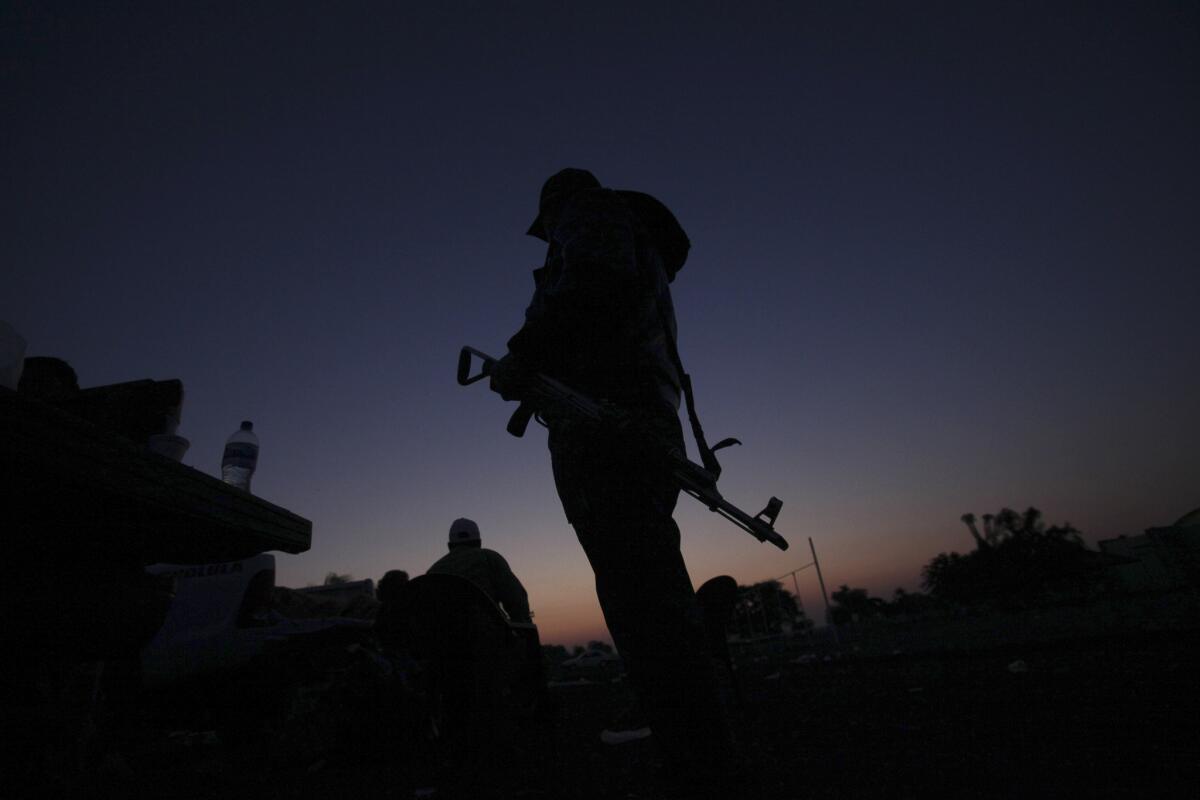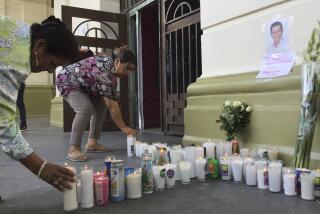Beltran Leyva cartel figure and a Michoacan mayor arrested in Mexico

MEXICO CITY — Mexico’s drug and corruption crackdown intensified this week with the arrests of the reputed second in command of the Beltran Leyva drug cartel and the mayor of a Michoacan city once controlled by the Knights Templar criminal gang.
The detention Tuesday of Uriel Chavez Mendoza, the mayor of Apatzingan, could help government officials persuade the “self-defense” militias in the western state of Michoacan to comply with a newly minted agreement to disband by May 10. Tension between the armed citizen militias and the Knights Templar, a cult-like criminal organization, has made Michoacan one of the most sensitive security problems for the government of President Enrique Peña Nieto.
Meanwhile, the arrest of Beltran Leyva leader Arnoldo Villa Sanchez, announced Wednesday by federal authorities, highlights how closely the Peña Nieto administration has stuck with his predecessor’s “kingpin strategy” of targeting top narco bosses, despite the administration’s previous criticism of the policy.
In a news conference Wednesday, National Security Commissioner Monte Alejandro Rubido Garcia said Villa Sanchez, 40, was arrested after an investigation revealed that he would be visiting Mexico City during Holy Week. Rubido said the suspected capo and a bodyguard resisted arrest when confronted by security personnel in the capital’s trendy Condesa neighborhood, but were taken into custody without shots being fired.
The Beltran Leyva cartel has been in decline since a number of top capos were killed or arrested during the tenure of the previous president, Felipe Calderon. In November, the U.S. Treasury Department warned of a resurgence of the cartel, and identified Villa Sanchez as the head of security for top boss Hector Beltran Leyva.
At the end of his term in 2012, Calderon bragged that his government had killed or arrested two-thirds of Mexico’s 37 most-wanted criminals. Peña Nieto’s team, however, criticized Calderon’s strategy, saying it caused the criminal groups to splinter, with the smaller groups branching out into other criminal activities, such as extortion and kidnapping.
The current administration nonetheless appears to be pursuing drug kingpins as aggressively as the previous one, most notably with the arrest of Sinaloa Cartel boss Joaquin “El Chapo” Guzman in February.
Whether the strategy is making Mexico safer remains a matter of intense debate. The government has said homicides last year declined by 16% from 2012 levels, although some observers doubt the accuracy of those figures. At the same time, reported kidnappings and extortions have been on the rise.
A report on drug violence issued this week by the University of San Diego’s Justice in Mexico Project noted a dramatic decline last year in homicides in the border states of Chihuahua, Nuevo Leon and Coahuila, all crucial smuggling regions. Michoacan, meanwhile, saw the largest jump in homicides of any state.
Apatzingan, a city of about 90,000 residents 210 miles west of Mexico City, was long considered a stronghold of the Knights Templar. The self-defense groups entered the city in February, backed by federal military and police, ending Knights Templar control. In the ensuing weeks, some militia leaders complained that Chavez Mendoza, the mayor, was a well-known collaborator with the Knights Templar, an allegation he has strenuously denied.
The Michoacan state prosecutor’s office said Chavez Mendoza used intimidation to persuade three aldermen to donate a chunk of their salary to the Knights Templar.
The self-defense leaders have said they would give up their homegrown struggle when the government dismantles the Knights Templar. A number of its top leaders have been killed or captured in recent months, although the top capo, Servando Gomez Martinez, known as “La Tuta,” remains at large.
Twitter: @RichardFausset
Sanchez is a news assistant in The Times’ Mexico City bureau.
More to Read
Sign up for Essential California
The most important California stories and recommendations in your inbox every morning.
You may occasionally receive promotional content from the Los Angeles Times.










